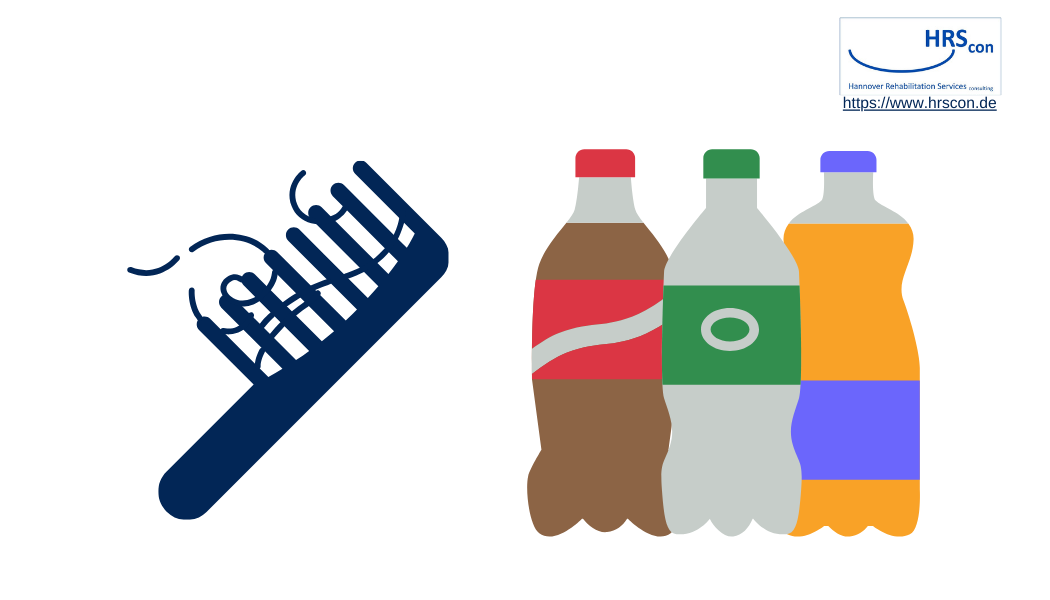Hair loss, a common concern for men and women alike, appears to be on the rise, particularly among younger adults. This trend raises significant questions about the factors contributing to this phenomenon. A recent study conducted in China delves into a surprising culprit: sugary drinks. This article explores the findings of this research, examining the link between high consumption of sugar-sweetened beverages (SSBs) and male pattern hair loss (MPHL) in young men.
A Cause for Concern: Rising Rates of Hair Loss in Young Adults
The study paints a concerning picture of MPHL prevalence among young Chinese men. Based on previous surveys, the data reveals a sharp increase in MPHL cases, jumping from 21.3% in 2010 to a concerning 27.5% in 2021. This rapid rise suggests a potential environmental or lifestyle factor contributing to this issue. Beyond physical appearance, MPHL can have a significant psychological impact, causing anxiety and depression, and ultimately affecting overall quality of life. Understanding the underlying causes of MPHL in young adults is crucial for developing effective preventive and treatment strategies.
Diet and Hair Health: A Complex Relationship
Hair loss can be attributed to various factors, including genetics, age, and underlying medical conditions. However, research increasingly points towards the role of diet in maintaining healthy hair growth. This study focuses on SSBs, a major source of added sugars in modern diets, particularly popular among young people. SSBs encompass a wide range of beverages, including sodas, sweetened juices, sports drinks, and energy drinks. While some earlier studies investigating the connection between SSBs and hair loss yielded conflicting results, this new research offers a more comprehensive analysis.
Unveiling the Link: High SSB Consumption and Increased Hair Loss Risk
The Chinese study identified a significant association between frequent and high-volume SSB consumption and a higher risk of MPHL in young men. This association remained statistically significant even after accounting for other factors known to influence hair loss, such as body mass index (BMI), physical activity levels, and smoking habits. Interestingly, the negative impact of SSBs held true for various types of these beverages, including those sweetened with sugar and those containing artificial sweeteners. This suggests that the negative effects might extend beyond just the sugar content of these drinks.
Exploring the Mechanisms: Beyond a Simple Sugar Spike
The researchers propose several potential mechanisms explaining the link between SSBs and hair loss. One mechanism involves the polyol pathway, a biochemical process within the body. High sugar intake can trigger this pathway, leading to a series of reactions that may ultimately disrupt the health and function of hair follicles. Additionally, chronic SSB consumption might indirectly contribute to hair loss by increasing the risk of chronic diseases, such as diabetes and hypertension. These conditions can have a detrimental effect on hair health. Furthermore, excessive SSB consumption may also be linked to a higher risk of emotional problems like anxiety. Since anxiety and stress are known to influence hair growth, this could be another potential pathway through which SSBs indirectly contribute to hair loss.
Limitations and the Need for Further Research
While the study strengthens the evidence against excessive SSB consumption, it acknowledges limitations inherent to its design. The cross-sectional nature of the study makes it difficult to definitively establish a cause-and-effect relationship between SSB intake and MPHL. It’s possible that individuals experiencing hair loss may be more likely to reduce their SSB consumption, creating a reverse causality. Additionally, the study relied on self-reported data, which can be prone to bias. Further longitudinal studies, tracking participants’ SSB intake over time and monitoring hair loss development, are needed to solidify the connection and provide more conclusive evidence. Randomized controlled trials, where participants are assigned to either an SSB-restricted group or a control group, would offer the strongest evidence for a causal relationship.
Public Health Implications and a Message for Young Adults
Reducing SSB consumption is a global public health challenge. This research highlights the potential benefits of such efforts for young adults, not only for overall health but also for maintaining healthy hair growth. Public health initiatives can emphasize the negative impact of SSBs on appearance, particularly appealing to young people who are often concerned about their image. Educational campaigns promoting healthier beverage choices, such as water and unsweetened tea, can empower young adults to make informed dietary decisions.
Empowering Young Adults to Take Charge of Their Health
Hair loss can be a significant source of distress for young men. This study provides valuable information, empowering young adults to take control of their health by limiting sugary drinks. By making informed dietary choices and adopting healthier lifestyles, young men can not only improve their overall well-being but also potentially reduce the risk of hair loss. This research also highlights the importance of early intervention. If you are experiencing hair loss, it’s crucial to consult a dermatologist to determine the underlying cause and discuss treatment options.

